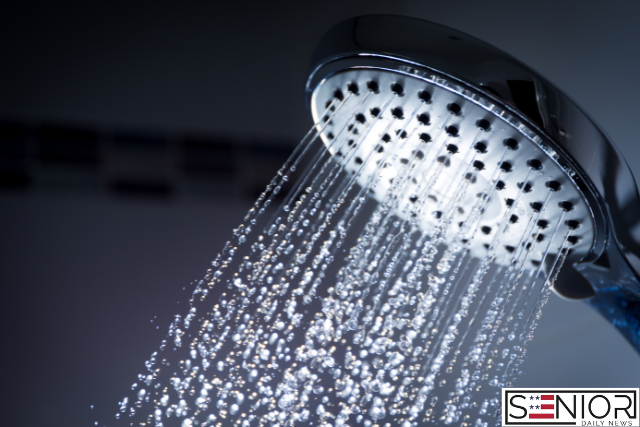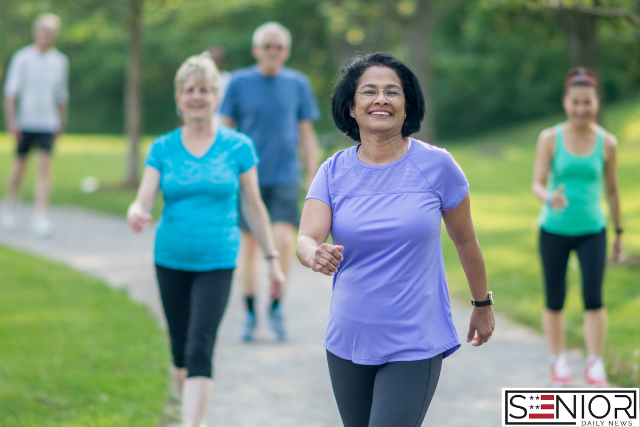The Science Behind Cold Showers and Longevity

In recent years, the wellness world has been buzzing about the benefits of cold showers. While this practice might sound like a throwback to stoic discipline or a hack for athletes, emerging scientific evidence reveals a compelling link between cold exposure and longevity. Could your morning shiver be the secret to a longer, healthier life?
This article dives deep into the science behind cold showers, exploring how they influence the body and mind, their potential to extend lifespan, and practical tips for safely incorporating cold exposure into your daily routine.
What Happens When You Take a Cold Shower?
A cold shower, typically defined as water below 70°F (21°C), prompts a range of physiological responses in the body. The sudden exposure to cold stimulates the sympathetic nervous system—the part of your body responsible for the ‘fight or flight’ response.
Here’s what happens on a physiological level:
- Vasoconstriction: Blood vessels narrow, redirecting blood from the skin to vital organs. This helps maintain core temperature.
- Increased Heart Rate and Blood Pressure: A cold shock boosts circulation and enhances cardiovascular conditioning over time.
- Activation of Brown Fat: Cold exposure stimulates brown adipose tissue (BAT), which burns calories to generate heat.
These bodily changes are more than just momentary discomfort—they may hold the key to improving overall health and extending longevity.
Cold Showers and Longevity: The Science
1. Boosting the Immune System
Cold exposure has been associated with improved immune function. A Dutch study published in PLOS One (2016) involving over 3,000 participants found that those who took cold showers had a 29% reduction in self-reported sickness absence from work.
Mechanism: Cold showers increase the count of white blood cells and improve lymphatic circulation. The body learns to become more resilient to stressors, which supports the immune system.
2. Hormesis: Stress that Heals
One of the core theories explaining cold exposure’s health benefits is hormesis. This biological phenomenon suggests that low-dose stress—like cold water exposure—triggers adaptive responses that strengthen the body.
Examples of hormetic responses include:
- Enhanced antioxidant defenses
- Improved DNA repair
- Increased resistance to oxidative stress
These mechanisms are all directly linked to aging and longevity. Regular hormetic stress may help maintain cellular health, thereby slowing age-related degeneration.
3. Improved Metabolic Function and Weight Regulation
Cold showers stimulate brown fat, which plays a crucial role in thermogenesis. Brown fat burns calories to generate heat, unlike white fat, which stores energy.
A study in the Journal of Clinical Investigation (2014) found that regular exposure to mildly cold temperatures increased brown fat activity and improved insulin sensitivity—both essential for preventing age-related metabolic disorders.
By regulating glucose levels and enhancing metabolism, cold exposure may protect against diseases like type 2 diabetes and obesity, which are significant aging accelerators.
4. Enhanced Circulation and Cardiovascular Health
When you take a cold shower, your body responds by improving circulation to maintain internal balance. Over time, this “exercise” for your blood vessels can result in:
- Lower resting heart rate
- Better arterial flexibility
- Reduced risk of cardiovascular disease
A well-functioning circulatory system is vital for nutrient delivery and waste removal—key components of longevity and disease prevention.
5. Reduction in Inflammation
Chronic inflammation is one of the major causes of aging and many diseases, including Alzheimer’s, cancer, and cardiovascular disease. Cold exposure reduces levels of inflammatory markers like TNF-alpha and IL-6.
Cold water therapy has even been used to support recovery from surgeries and sports injuries due to its anti-inflammatory effects.
Mental Benefits That Contribute to Longevity
Mental health is a vital, though often overlooked, pillar of longevity. Cold showers impact neurotransmitters and mental resilience in profound ways.
1. Increased Dopamine and Norepinephrine
Cold showers trigger a surge in norepinephrine—by up to 530% according to a study from Psychiatry Research (2000)—and dopamine, the “feel-good” neurotransmitter. These chemicals enhance focus, mood, and alertness.
2. Reduction in Symptoms of Depression
A hypothesis published in Medical Hypotheses (2008) proposed that cold showers could act as a mild electroshock therapy by sending electrical impulses to the brain. This stimulates the brain’s “blue spot”—a primary source of norepinephrine.
While not a replacement for professional treatment, cold exposure shows potential as a natural mood enhancer.
3. Improved Stress Resilience
By consistently exposing yourself to cold, you train your nervous system to handle stress better. This can reduce cortisol levels and improve your ability to handle life’s daily pressures—reducing the long-term mental wear and tear that accelerates aging.
Cold Showers vs. Cold Water Immersion: What’s More Effective?
While cold showers offer many benefits, some researchers argue that cold water immersion (e.g., ice baths) is more effective due to more consistent and total body exposure.
That said, cold showers are significantly more accessible and safer for beginners. Studies show that even brief cold showers (30 seconds to 2 minutes) are sufficient to trigger most of the beneficial responses.
Who Should Be Cautious?
Although generally safe for healthy individuals, cold showers may not be suitable for everyone. Those with the following conditions should consult a physician:
- Cardiovascular disease
- High blood pressure
- Asthma or respiratory disorders
- Raynaud’s disease or severe circulatory issues
How to Start Taking Cold Showers Safely
Transitioning from hot to cold doesn’t have to be abrupt. Here’s a safe step-by-step method:
- Start Warm: Begin with your usual hot shower.
- Gradual Cool-Down: Slowly decrease the temperature until it’s noticeably cold but tolerable.
- Time It: Aim for 30 seconds initially, then gradually build up to 2–3 minutes.
- Control Breathing: Practice deep, slow breathing to calm your body’s stress response.
- Repeat Daily: Consistency is key to reaping long-term benefits.
Myth-Busting: Common Cold Shower Misconceptions
Myth 1: Cold showers will make you sick.
Truth: They actually stimulate immune function, as supported by multiple studies.
Myth 2: You need ice-cold water to benefit.
Truth: Even mildly cold water (around 60–70°F) can provide measurable benefits.
Myth 3: Cold showers are only for elite athletes or extreme health enthusiasts.
Truth: Anyone can benefit from cold exposure when done safely and gradually.
The Role of Cold Showers in a Longevity Lifestyle
Cold showers alone won’t guarantee a longer life—but they complement a broader lifestyle centered on:
- Balanced Nutrition: Anti-inflammatory and antioxidant-rich diets support cellular health.
- Exercise: Physical activity enhances cardiovascular and metabolic health.
- Sleep: Proper rest facilitates recovery and hormone regulation.
- Mindfulness: Stress management reduces cortisol levels and inflammation.
When combined with these pillars, cold showers become a powerful tool in the pursuit of healthspan (how long you live healthily) and lifespan.
FAQs About Cold Showers and Longevity
Q1: How long should I stay under a cold shower for maximum benefits?
A: Aim for at least 30 seconds to 2 minutes. Over time, you can increase duration as your body adapts.
Q2: How often should I take cold showers?
A: Daily exposure is ideal, but even 3–4 times per week can yield benefits.
Q3: Can cold showers replace exercise or a healthy diet?
A: No. Cold showers are a supplement—not a substitute—for a healthy lifestyle.
Q4: Will cold showers help with muscle recovery?
A: Yes, they reduce inflammation and can aid recovery, though ice baths may be more effective post-intense workouts.
Q5: Are cold showers safe for the elderly?
A: They can be, but older adults should consult with a healthcare provider due to potential cardiovascular risks.
Image Designed Using Canva






